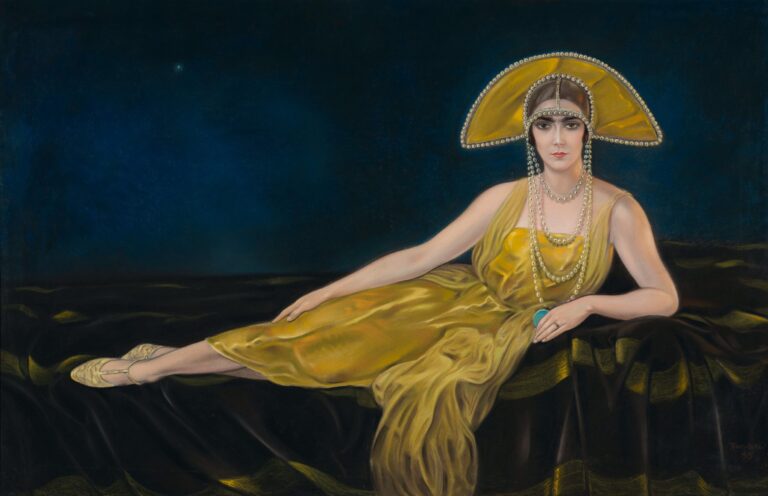Octavia was the eldest sister of Augustus and the fourth wife of Mark Anthony, whom she married by decree of the Senate in 40 b.C. The approval of the Senate was necessary because, at the time of the marriage, she was pregnant with her first husband, senator Gaius Claudius Marcellus, one of the most vehement opposers of Julius Caesar.
She was one of the most important women in Roman history, respected and admired for her loyalty, nobility of spirit and humanity. She embodied the traditional Roman virtues of a noblewoman, which we have already seen included patience in order to deal with Roman men.
Between 40 and 36 b.C., she travelled with Mark Anthony and she raised all the children of their enlarged family in Antony’s mansion in Athens.
She should have followed him more, as she was eventually abandoned when Antony decided to officially set up with his former lover, legendary Queen Cleopatra VII of Egypt. Regardless of her crucial role in providing him aid, political assistance and sometimes even troops during his campaigns, he divorced her in 33 b.C. and sent men to evict her from his house in Rome.
After his suicide in 30 b.C., she was able to have permission to raise both her sons and the sons Antony had with Cleopatra (two sons and one daughter, Cleopatra Selene II).
Augustus granted her high honours and privileges: particularly, just like Livia, she was made immune from the need of having a male guardian, something only Vestals were spared from in Ancient Rome.
She famously lost one of her sons and it is said that she fainted while Virgil recited the verses he dedicated to her son into the Aeneid. This scene is often depicted in paintings, as artists cannot resist a woman fainting in front of art.
A famous work is by Jean-Auguste-Dominique Ingres, with Virgil reading The Aeneid before Augustus, Octavia and Livia (1812).
Before him, Jean-Joseph Taillasson had already working on a Virgil reading the Aeneid to Augustus and Octavia (1787).
In this one, you’ve got to appreciate Augustus’ expression that seems to go like “Dude, tune down the tragedy: don’t you have any tact?”, and Virgil goes like “Pal, I thought she would be pleased”.









No Comments